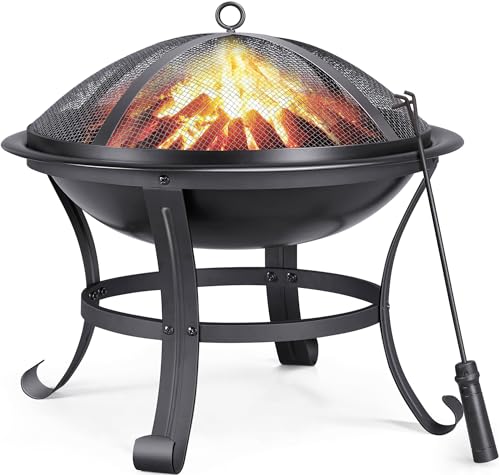The Different Kinds of Fire Pit Fuel
Before deciding on the best fuel for your fire pit, it is important to know the different types that are available. The three most common types are wood, propane, and natural gas. Wood is the traditional fuel for a fire pit, while propane and natural gas are more modern options.
Wood: The Traditional Fuel
Wood is the classic fire pit fuel that has been used for centuries. It is readily available, affordable, and gives off the quintessential campfire aroma. However, wood requires a bit more maintenance than other fuels. You need to keep a stockpile of wood and also dispose of the ashes after use. Moreover, wood can create a lot of smoke, which can be unpleasant when it blows towards your house or your neighbor’s yard.
Propane: The Modern Convenience
Propane is a popular choice for those who value convenience over tradition. With propane, you can simply turn the fire on and off with a switch. There is no need to maintain a stockpile of wood or clean up ashes. Moreover, propane creates no smoke, which makes it ideal for those who live in cities or have neighbors close by. However, propane is more expensive than wood and doesn’t produce the same campfire smell.
Natural Gas: The Permanent Option
Natural gas is similar to propane but is a permanent option that requires a gas line to be installed. Once the line is installed, you can turn the fire on and off with a switch, just like propane. Natural gas is the most convenient option since it requires no maintenance, and there is no need to replace any fuel source. However, it requires professional installation and the upfront cost can be high.
Which Fuel is Best?
Choosing the best fuel for your fire pit ultimately depends on your individual needs and preferences. If you value tradition and don’t mind the extra maintenance, wood may be the best option for you. If you live in a city or have close neighbors, propane or natural gas may be the better choice since they produce little to no smoke. And if you value convenience above all else, natural gas may be worth the initial investment to avoid any maintenance requirements.






